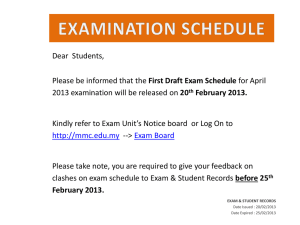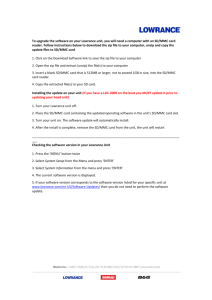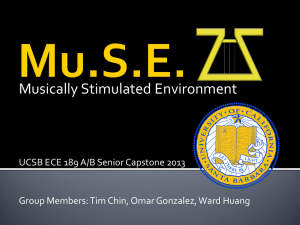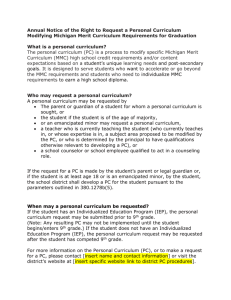Terms of Reference
advertisement
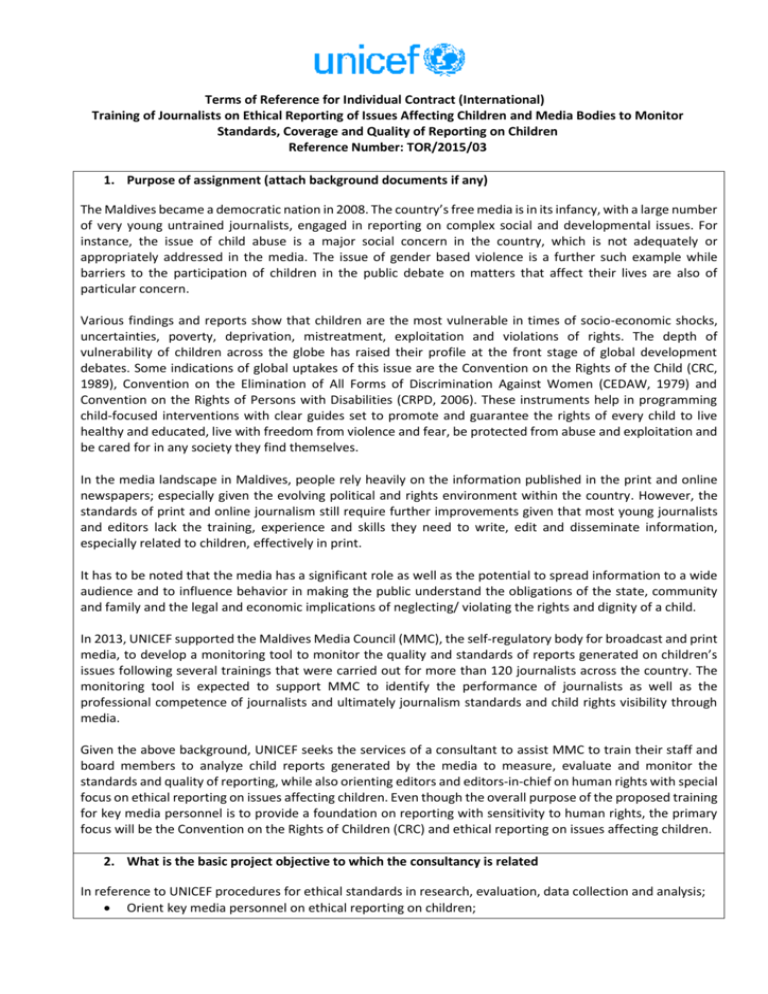
Terms of Reference for Individual Contract (International) Training of Journalists on Ethical Reporting of Issues Affecting Children and Media Bodies to Monitor Standards, Coverage and Quality of Reporting on Children Reference Number: TOR/2015/03 1. Purpose of assignment (attach background documents if any) The Maldives became a democratic nation in 2008. The country’s free media is in its infancy, with a large number of very young untrained journalists, engaged in reporting on complex social and developmental issues. For instance, the issue of child abuse is a major social concern in the country, which is not adequately or appropriately addressed in the media. The issue of gender based violence is a further such example while barriers to the participation of children in the public debate on matters that affect their lives are also of particular concern. Various findings and reports show that children are the most vulnerable in times of socio-economic shocks, uncertainties, poverty, deprivation, mistreatment, exploitation and violations of rights. The depth of vulnerability of children across the globe has raised their profile at the front stage of global development debates. Some indications of global uptakes of this issue are the Convention on the Rights of the Child (CRC, 1989), Convention on the Elimination of All Forms of Discrimination Against Women (CEDAW, 1979) and Convention on the Rights of Persons with Disabilities (CRPD, 2006). These instruments help in programming child-focused interventions with clear guides set to promote and guarantee the rights of every child to live healthy and educated, live with freedom from violence and fear, be protected from abuse and exploitation and be cared for in any society they find themselves. In the media landscape in Maldives, people rely heavily on the information published in the print and online newspapers; especially given the evolving political and rights environment within the country. However, the standards of print and online journalism still require further improvements given that most young journalists and editors lack the training, experience and skills they need to write, edit and disseminate information, especially related to children, effectively in print. It has to be noted that the media has a significant role as well as the potential to spread information to a wide audience and to influence behavior in making the public understand the obligations of the state, community and family and the legal and economic implications of neglecting/ violating the rights and dignity of a child. In 2013, UNICEF supported the Maldives Media Council (MMC), the self-regulatory body for broadcast and print media, to develop a monitoring tool to monitor the quality and standards of reports generated on children’s issues following several trainings that were carried out for more than 120 journalists across the country. The monitoring tool is expected to support MMC to identify the performance of journalists as well as the professional competence of journalists and ultimately journalism standards and child rights visibility through media. Given the above background, UNICEF seeks the services of a consultant to assist MMC to train their staff and board members to analyze child reports generated by the media to measure, evaluate and monitor the standards and quality of reporting, while also orienting editors and editors-in-chief on human rights with special focus on ethical reporting on issues affecting children. Even though the overall purpose of the proposed training for key media personnel is to provide a foundation on reporting with sensitivity to human rights, the primary focus will be the Convention on the Rights of Children (CRC) and ethical reporting on issues affecting children. 2. What is the basic project objective to which the consultancy is related In reference to UNICEF procedures for ethical standards in research, evaluation, data collection and analysis; Orient key media personnel on ethical reporting on children; Train MMC staff and board members to analyze current reports generated by the media on children’s issues 3. Duty station Male’ Maldives 4. Major tasks to be accomplished (estimate the time required to complete each task) 1. Training of senior media personnel Design a two-day training programme with modules covering key sensitizing sessions on child rights, ethical reporting and CRC for editors, editors-in-chief and senior reporters Prepare training materials, handout notes, practical exercises Conduct hands-on training using exercises and appropriate media report samples to help participants analyze and obtain lessons learnt and good reporting 2. Training of MMC staff and members on monitoring Design a one-day training for MMC staff and members on how to analyze and monitor quality, standard and coverage of reports generated on child rights by print and broadcast media Conduct hands-on training using exercises and appropriate media report samples to help participants analyze and monitor quality and coverage of reports Develop a guideline for future use on media monitoring for MMC 3. Produce a concluding report including observations and recommendations for UNICEF and MMC on emerging issues in journalism standards and practice globally and in the Maldives and what needs to be considered to ensure good coverage and quality of reporting by media on children’s issues 5. Deliverables 1. Key media personnel have enhanced knowledge and skills on ethics, standards and CRC and are able to apply these when reporting on children’s issues 2. MMC staff and members have enhanced capacity to monitor and analyze media reports and give appropriate feedback to journalists on standards and quality of reporting 3. A media monitoring guideline made available to MMC to be used in subsequent training of staff and members 4. Concluding report that includes an executive summary of the report, the discussion, issues, questions, agreed collective actions, observations on the topics which draw in most discussion that could be used as a tool for future monitoring of media reports 6. Estimated duration of contract and deadline for submission of end-product It is estimated that the consultant will work up to 12 days in total Design a training programme and development of and materials for two-day workshop for editors and identified key media personnel Design and development of training and materials including a guideline on quality, coverage and monitoring of media reports for MMC Training conducted Workshop evaluation and concluding report 3 days – Remote 4 days - Remote 3 days – in Maldives 2 day – in Maldives 7. Official travel involved (itinerary and duration) Travel to Maldives 8. Qualifications or specialized knowledge and/or experience required Advanced university degree in Communication, Journalism, Public Relation or a related field, or an undergraduate degree plus at least 10 years of demonstrated professional experience in the fields of journalism, communications, external relations, or public affairs or a related field. Minimum 3 years of media capacity building experience. Excellent English speaking and writing skills Good interpersonal and communication skills Experience conducting media trainings with UN agencies will be an asset Interested individuals are requested to submit a proposal with a draft Training Programme for Journalists on CRC, International Standards and Ethical Reporting on Children at Risk Issues with following components of each: individual sessions or recommended additional/ alternative sessions with Learner Objectives, Session Overview, and Key Points for Discussion. The application should also accompany a proposed lump sum fee for the 12 day training as identified in the Terms of Reference Deadline for applications is 20 April 2015. Proposals with all relevant other documents can be emailed to muaahmed@unicef.org with a copy to asmohamed@unicef.org; Only short listed candidates will be notified
